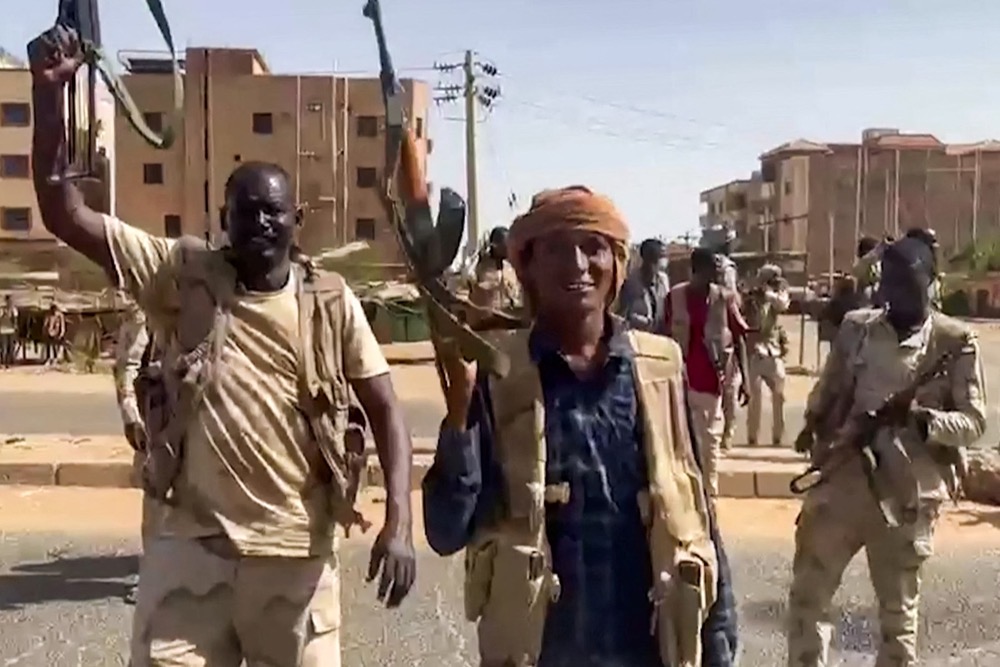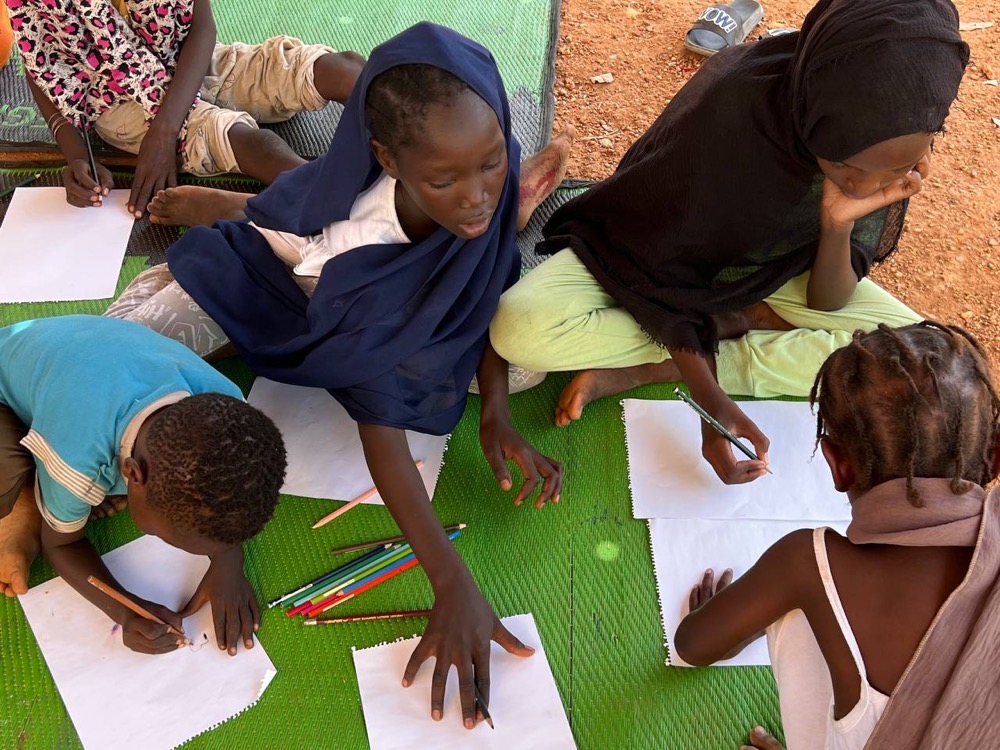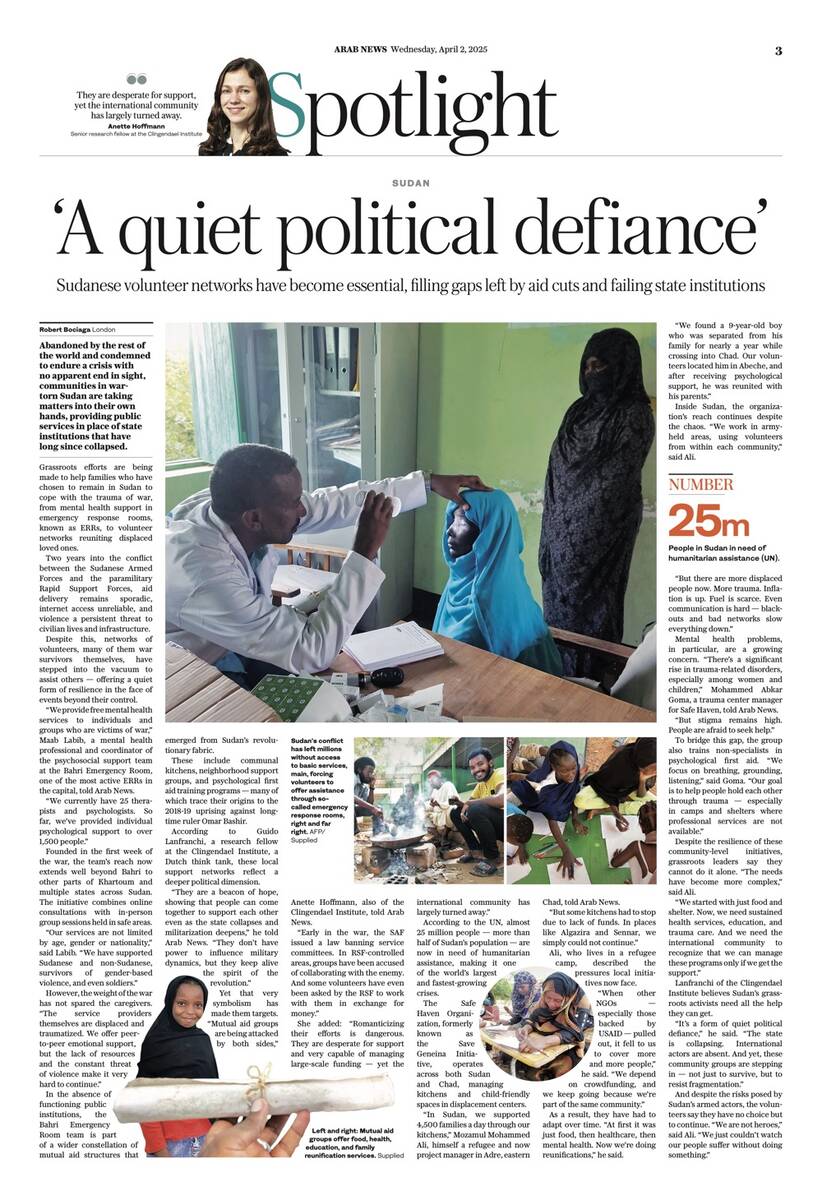DEIR-AL-BALAH, Gaza Strip: Local health officials said Israeli strikes killed at least 85 Palestinians across he Gaza Strip overnight and into Thursday, bringing the total to nearly 600 killed since Israel shattered a truce that had facilitated the release of more than two dozen hostages and brought relative calm since late January.
Hours later, Hamas fired three rockets at Israel without causing casualties, in the first such attack since Israel broke the ceasefire on Tuesday.
Zaher Al-Waheidi, the head of the records department at the Gaza Health Ministry, said Israeli bombardments have killed at least 592 people in the past three days.
The Israeli military said it was again enforcing a blockade on northern Gaza, including Gaza City. Palestinians were not being ordered to leave northern Gaza but can no longer enter, the military said, and are only allowed to move south on foot using the coastal road. Hundreds of thousands of Palestinians had returned to what remains of their homes in the north during the ceasefire.
Early Friday, Israel’s Cabinet unanimously approved Prime Minister Benjamin Netanyahu’s request to fire the head of the country’s Shin Bet internal security service. The late-night decision to sack Ronen Bar deepens a power struggle focused largely over who bears responsibility for the Hamas attack that sparked the war in Gaza.
It also could set the stage for a crisis over the country’s division of powers. Israel’s attorney general has ruled that the Cabinet has no legal basis to dismiss Bar.
Israeli ground forces, meanwhile, are pushing into Gaza near the northern town of Beit Lahiya and the southern border city of Rafah, the military said Thursday. The operations come a day after Israel moved to split Gaza in two by retaking part of the strategic Netzarim corridor that divides Gaza’s north from south.
The military ordered Palestinians to evacuate an area in central Gaza near the city of Khan Younis, saying it would operate there in response to Thursday’s rocket fire from Hamas. The Palestinian militant group said it targeted Tel Aviv. One rocket was intercepted and two fell in open areas, according to the army.
Yemen’s Iran-backed Houthi rebels also launched two missiles at Israel, one early Thursday morning and another in the evening, the military said. Both were intercepted before reaching Israeli airspace, according to the army, and no injuries were reported. Air raid sirens rang out and exploding interceptor rockets were heard in Jerusalem. There have been three such attacks since the United States began a new campaign of airstrikes against the Houthis earlier this week.
A ‘bloody night’ for hard-hit Gaza
Gaza’s Health Ministry said overnight Israeli strikes killed at least 85 people, mostly women and children. The ministry’s records do not distinguish between civilians and combatants.
The Indonesian Hospital said it received 19 bodies after strikes in Beit Lahiya, near Gaza’s northern border, which was heavily destroyed and largely depopulated earlier in the war.
“It was a bloody night for the people of Beit Lahiya,” said Fares Awad, head of the Health Ministry’s emergency service in northern Gaza, adding that rescuers were still searching the rubble. “The situation is catastrophic.”
Israel’s military said Thursday its airstrikes in Gaza had killed the head of Hamas’ internal security apparatus and two other militant commanders. Israel has said it only targets militants and blames civilian deaths on Hamas because it operates in densely populated areas. A United Nations-backed group of human rights experts accused Israel last week of “disproportionate violence against women and children” during the war in Gaza.
One of the strikes early Thursday hit the Abu Daqa family’s home in Abasan Al-Kabira, a village outside Khan Younis near the border with Israel. It was in an area the Israeli military ordered evacuated earlier this week, encompassing most of eastern Gaza.
The strike killed at least 16 people, mostly women and children, according to the nearby European Hospital, which received the dead. Those killed included a father and his seven children, as well as the parents and brother of a month-old baby who survived along with her grandparents.
“Another tough night,” said Hani Awad, who was helping rescuers search for more survivors in the rubble. “The house collapsed over the people’s heads.”
War in Gaza has no end in sight
US President Donald Trump’s administration reiterated its support for Israel, with White House press secretary Karoline Leavitt saying, “The president made it very clear to Hamas that if they did not release all of the hostages there would be all hell to pay.”
Israel, which cut off the supply of food, fuel and humanitarian aid to Gaza’s roughly 2 million Palestinians, has vowed to intensify its operations until Hamas releases the 59 hostages it holds — 24 of whom are believed alive — and gives up control of the territory.
Hamas says it will only release the remaining hostages in exchange for a lasting ceasefire and a full Israeli withdrawal from Gaza, as called for in the ceasefire agreement mediated by the United States, Egypt and Qatar.
Hamas says it’s willing to hand over power to the Western-backed Palestinian Authority or a committee of political independents but will not lay down its arms until Israel ends its decades-long occupation of lands the Palestinians want for a future state.
Shin Bet chief’s dismissal deepens Israeli political turmoil
Netanyahu said Sunday he would seek Bar’s dismissal, saying he had lost faith in his security chief.
But critics say the move is a power grab by Netanyahu against an independent-minded civil servant.
Tens of thousands of Israelis have demonstrated across the country in recent days in support of Bar, including a mass gathering outside Netanyahu’s office late Thursday in the pouring rain.
A Shin Bet report into the Oct. 7 attack acknowledged failures by the security agency. But it also said that policies by Netanyahu’s government created the conditions for the attack.
Netanyahu is also upset that the Shin Bet has launched an investigation into connections between some of his close aides and the Gulf state of Qatar. His office said Bar’s dismissal would take effect on April 10 or before then if a replacement is found.
Bar did not attend the meeting but sent a letter to the Cabinet ahead of time protesting the firing.
He said the dismissal was meant to hinder the agency from further investigating the failures of Oct. 7 and undermining the investigation into whether Qatar influenced the prime minister’s office.
“This is a direct danger to the security of the state of Israel,” Bar wrote.
The war began when Hamas-led militants stormed into southern Israel on Oct. 7, 2023, killing some 1,200 people and taking 251 hostage. Most of the hostages have been freed in ceasefire agreements or other deals. Israeli forces have rescued eight living hostages and recovered the bodies of dozens more.
Israel’s retaliatory offensive has killed more than 49,000 Palestinians, according to the Gaza Health Ministry. It does not say how many were militants, but says more than half of those killed were women and children. Israel says it has killed around 20,000 militants, without providing evidence.
The war at its height displaced around 90 percent of Gaza’s population and has caused vast destruction across the territory.
Strikes in Gaza kill 85 overnight, bringing the total since Israel broke ceasefire to nearly 600
https://arab.news/59nn9
Strikes in Gaza kill 85 overnight, bringing the total since Israel broke ceasefire to nearly 600

- Medics say Israeli strikes targeted several houses in northern and southern areas of the Gaza Strip




































